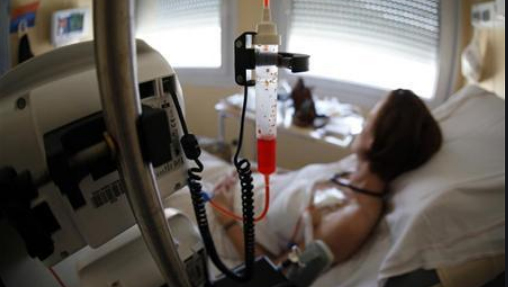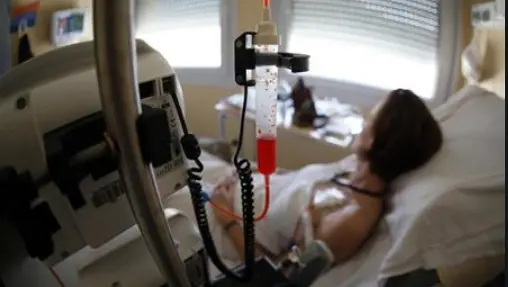
The treatment of cancer patients underwent major changes during the first wave of the novel coronavirus pandemic in the UK, with doctors giving shorter doses of radiotherapy and delaying surgeries.
Hospitals changed treatment courses to quickly adapt to pandemic guidelines to prevent people with underlying health conditions from getting infected with the novel coronavirus and ease pressure on health systems. As a result, radiotherapy for cancer patients decreased by 19.9 percent in April, 6.2 percent in May, and 11.6 percent in June 2020 compared with the same months the previous year, according to a study published in The Lancet Oncology.
The therapy is used as a part of a cure in the early cancer stage, control its spread, reduce post-surgery recurrence, and relieve patients from excruciating pain. Altogether, there were more than 3,000 fewer radiotherapy courses between March 23 and June 28 last year.
The "dramatic changes" in terms of missed courses were likely to be due to postponement, where the risk of doing so was deemed low, researchers said. Breast cancer cases witnessed a sharp increase in shorter radiotherapy sessions, which increased from .02 percent in April 2019 to 60 percent in April 2020.
But some cancers registered a significant increase in the use of radiotherapy courses compared to the previous year. Bladder cancer cases recorded a spike of nearly 144 percent, oesophageal cancer 71.3 percent and bowel cancer 36.3 percent for curative radiotherapy.
Cancer patients' treatment courses were changed to follow national and international recommendations to ensure safe and effective radiotherapy use during the outbreak. "It is impressive to see that the data closely follows the guidelines published at the start of the pandemic," said Dr. Katie Spencer, lead author of the study.
"For cancers such as breast and bowel, shorter, more intensive treatments were delivered to provide similar outcomes for patients. Where treatment delay is safe, like in prostate cancer, delays were used to reduce the risk of coronavirus exposure. This was particularly important for older patients, who are more vulnerable to the virus."
Researchers compared data from Public Health England's National Radiotherapy between February and June 2020 with the same period in 2019 to measure pandemic and lockdown effects on cancer treatment.
The largest reduction of 34.4 percent in treatments was seen for patients aged 70 and above in April 2020. This likely reflects concern where patient vulnerability to coronavirus risks outweighed the low risk expected from delaying treatment in some settings, wrote the researchers. The treatment for prostate cancer and non-melanoma skin cancer dropped 77 and 72.4 percent, respectively.
"This research shows the incredible speed with which radiotherapy services within the National Health Service were able to adapt their treatment patterns to help protect patients with cancer, whilst coping with reduced surgical capacity due to the global pandemic," said Dr. Tom Roques, co-author of the study.
"Despite the intense pressures on the NHS, it was able to effectively adapt radiotherapy treatments, finding alternative treatment options where possible, and continuing its world-leading standards of patient care," Roques added.
(Cover: A patient receives chemotherapy treatment for breast cancer at the Antoine-Lacassagne Cancer Center in Nice July 26, 2012. /Reuters)
 简体中文
简体中文










